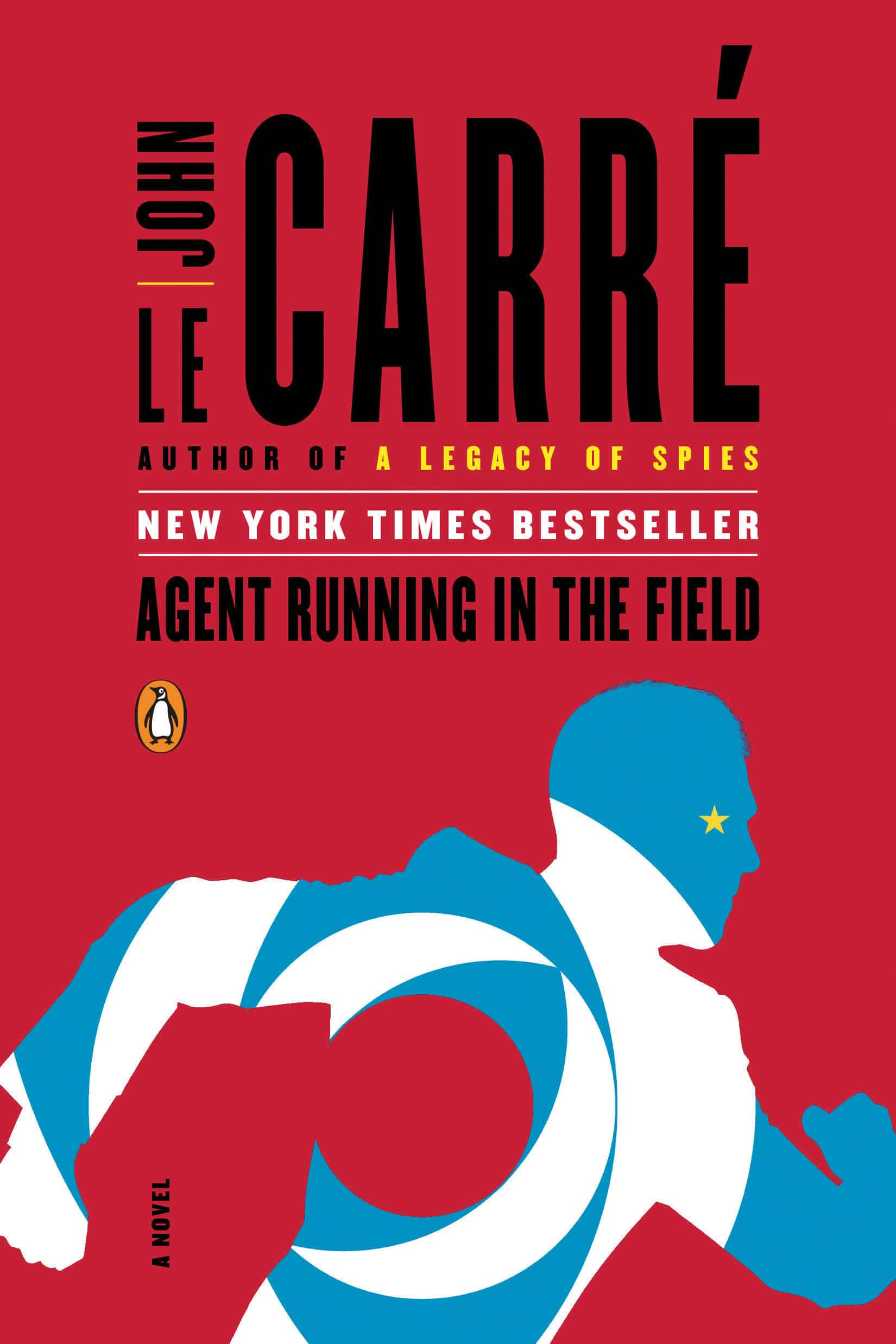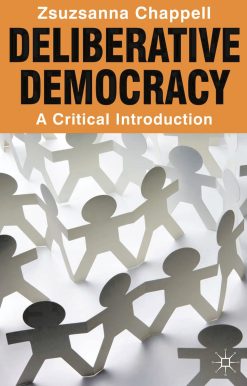Agent Running in the Field
17.00 JOD
Please allow 2 – 5 weeks for delivery of this item
Add to Gift RegistryDescription
New York Times BestsellerNational BestsellerA new novel from the #1 New York Times bestselling author John le CarréSet in London in 2018, Agent Running in the Field follows a twenty-six year old solitary figure who, in a desperate attempt to resist the new political turbulence swirling around him, makes connections that will take him down a very dangerous path. In his plot and characterization le Carré is as thrilling as ever and in the way he writes about our times he proves himself, once again, to be the greatest chronicler of our age.
Additional information
| Weight | 0.25 kg |
|---|---|
| Dimensions | 1.96 × 13.85 × 20.91 cm |
| PubliCanadation City/Country | Canada |
| by | |
| format | |
| Language | |
| Pages | 288 |
| publisher | |
| Year Published | 2020-8-18 |
| Imprint | |
| ISBN 10 | 0735238634 |
| About The Author | JOHN LE CARRÉ was born in 1931. For six decades, he wrote novels that came to define our age. The son of a confidence trickster, he spent his childhood between boarding school and the London underworld. At sixteen he found refuge at the University of Bern, then later at Oxford. A spell of teaching at Eton led him to a short career in British Intelligence, in MI5 and MI6. He published his debut novel, Call for the Dead, in 1961 while still a secret servant. His third novel, The Spy Who Came in from the Cold, secured him a worldwide reputation, which was consolidated by the acclaim for his trilogy Tinker Tailor Soldier Spy, The Honourable Schoolboy, and Smiley’s People. At the end of the Cold War, le Carré widened his scope to explore an international landscape including the arms trade and the War on Terror. His memoir, The Pigeon Tunnel, was published in 2016 and the last George Smiley novel, A Legacy of Spies, appeared in 2017. He died on December 12, 2020. |
LONGLISTED FOR THE GUARDIAN'S "NOT THE BOOKER PRIZE"A ZOOMER BOOK CLUB PICKONE OF THE SUNDAY TIMES' (UK) "PICKS OF THE BEST PAPERBACKS"“This morally murky world of spying is where le Carré continues to make his literary mark … Agent taps into the disillusionment of aging spies who turn their backs on the British establishment after years of loyal service because the cause they once espoused has gone.” —The New York Times“Agent Running in the Field mirrors readers’ anxiety over the state of the world … [Carré’s] lost none of his master’s touch.” —Toronto Star“[A] thriller laced with Brexit fury … The master of the spy genre takes aim at Brexit and Trump in a classy entertainment about political ideals and deception … There is the sense of a master enjoying himself hugely: the characters themselves seem to become cleverer and wittier as their puppeteer’s dialogic invention takes flight.” —The Guardian“Intricate, exciting and appallingly believable, Agent Running in the Field turns on questions both moral and political.” —Maclean’s“Le Carré is one of the best novelists—of any kind—we have.” —Vanity Fair “Le Carré remains a master at showing us what spies do, wily spiders to the unsuspecting flies they entrap.” —Booklist (starred review)“[Agent Running in the Field is] a tragicomic salute to both the recuperative powers of its has-been hero and the remarkable career of its nonpareil author.” —Kirkus Reviews“John le Carré is the great master of the spy story … The constant flow of emotion lifts him not only above all modern suspense novelists, but above most novelists now practicing.” —Financial Times (UK)“One of our great writers of moral ambiguity, a tireless explorer of that darkly contradictory no-man's land.” —Los Angeles Times“In his plot and characterization, le Carré is as thrilling as ever and in the way he writes about our times he proves himself, once again, to be the greatest chronicler of our age.” —The Seminary Co-op Bookstore “As always, it is a sheer pleasure to read le Carré’s muscular prose. Few writers are so well able to convey strength and self-belief, with the result that the reader is forced to accept everything he says, sometimes against one’s better judgment … What’s most remarkable is the way in which le Carré can still produce set-pieces of a type that he more or less invented fifty years ago and, at the age of 87, do them better than his scores of imitators.” —The Telegraph (starred review)“A perfectly tight thriller.” —The Sunday Times (UK)“At age 88, Le Carré is still on top of his literary game with [Agent Running in the Field].” —Zoomer, “5 Binge-Worthy Books Set in the UK” |
|
| Excerpt From Book | Chapter I Our meeting was not contrived. Not by me, not by Ed, not by any of the hidden hands supposedly pulling at his strings. I was not targeted. Ed was not put up to it. We were neither covertly nor aggressively observed. He issued a sporting challenge. I accepted it. We played. There was no contrivance, no conspiracy, no collusion. There are events in my life – only a few these days, it’s rue – that admit of one version only. Our meeting is such an event. My telling of it never wavered in all the times they made me repeat it. It is a Saturday evening. I am sitting in the Athleticus Club in Battersea, of which I am Honorary Secretary, a largely meaningless title, in an upholstered deckchair beside the indoor swimming pool. The clubroom is cavernous and high-raftered, part of a converted brewery, with the pool at one end and a bar at the other, and a passageway between the two that leads to the segregated changing rooms and shower areas. In facing the pool I am at an oblique angle to the bar. Beyond the bar lies the entrance to the clubroom, then the lobby, then the doorway to the street. I am thus not in a position to see who is entering the clubroom or who is hanging around in the lobby reading notices, booking courts or putting their names on the Club ladder. The bar is doing brisk trade. Young girls and their swains splash and chatter.I am wearing my badminton kit: shorts, sweatshirt and a new pair of ankle-friendly trainers. I bought them to fend off a niggling pain in my left ankle incurred on a ramble in the forests of Estonia a month previously. After prolonged back-to-back stints overseas I am savouring a well-deserved spell of home leave. A cloud looms over my professional life that I am doing my best to ignore. On Monday I expect to be declared redundant. Well, so be it, I keep telling myself. I am entering my forty-seventh year, I have had a good run, this was always going to be the deal, so no complaints. All the greater therefore the consolation of knowing that, despite the advance of age and a troublesome ankle, I continue to reign supreme as Club champion, having only last Saturday secured the singles title against a talented younger field. Singles are generally regarded as the exclusive preserve of fleet-footed twenty-somethings, but thus far I have managed to hold my own. Today, in accordance with Club tradition, as newly crowned champion I have successfully acquitted myself in a friendly match against the champion of our rival club across the river in Chelsea. And here he is sitting beside me now in the afterglow of our combat, pint in hand, an aspiring and sportsmanlike young Indian barrister. I was hard pressed till the last few points, when experience and a bit of luck turned the tables in my favour. Perhaps these simple facts will go some way to explaining my charitable disposition at the moment when Ed threw down his challenge, and my feeling, however temporary, that there was life after redundancy. My vanquished opponent and I are chatting amiably together. The topic, I remember as if it were yesterday, was our fathers. Both, it turned out, had been enthusiastic badminton players. His had been All-India runner-up. Mine for one halcyon season had been British Army champion in Singapore. As we compare notes in this amusing way I become aware of Alice, our Caribbean-born receptionist and bookkeeper, advancing on me in the company of a very tall and as yet indistinct young man. Alice is sixty years old, whimsical, portly and always a little out of wind. We are two of the longest-standing members of the Club, I as player, she as mainstay. Wherever I was stationed in the world, we never failed to send each other Christmas cards. Mine were saucy, hers were holy. When I say advancing on me, I mean that, since the two of them were attacking me from the rear with Alice leading the march, they had first to advance, then turn to face me, which comically they achieved in unison. ‘Mister Sir Nat, sir,’ Alice announces with an air of high ceremony. More often I am Lord Nat to her, but this evening I am a common knight. ‘This very handsome and polite young man needs to talk to you most privately. But he don’t want to disturb you in your moment of glory. His name is Ed. Ed, say hullo to Nat.’ For a long moment in my memory Ed remains standing a couple of paces behind her, this six-foot-something, gawky, bespectacled young man with a sense of solitude about him and an embarrassed half-smile. I remember how two competing sources of light converged on him: the orange strip light from the bar, which endowed him with a celestial glow, and behind him the down lights from the swimming pool, which cast him in oversized silhouette. |
Only logged in customers who have purchased this product may leave a review.






Reviews
There are no reviews yet.